Don't wanna be here? Send us removal request.
Text
Art or Illusion?
Explore our latest blog where we unwrap the secrets of image manipulation in fashion photography.
#branding#creativedirector#photography#ecommerce agency#artdirector#photographers#productphotoediting#imagemanipulation#productphotography#fashionphotoediting#fashion#fashion photography
0 notes
Text
Wanna get into the World of Niche Photography?
Explore untapped markets and discover how to make your camera work wonders in specialized fields.
Click on the link below and open the door to new horizons in your photography business today!
#branding#productphotography#ecommerce agency#photographers#photography#niche#marketingphotography#productphotographer#portrait#comercial
0 notes
Text

Our Color Correction Service ensures every photo in your portfolio has consistent, beautiful color quality, enhancing your professional image.
Unify your portfolio with perfect colors today.
Get started with a free trial!
0 notes
Text
#photoediting#lightroom#photoshop#adobe#adobe photoshop#adobe lightroom#branding#productphotography#ecommerce agency#photographers#productphotoediting#creativedirector#photography#artdirector
0 notes
Text

What makes portraits truly impactful?
Our multi-faceted approach to portrait image editing is designed to target key areas of focus that make the first impression hit close to home.
Want to see how we embed our touch of #professionalism into portraits? Give it a shot with our exclusive 5-image #freetrial, and find out!
0 notes
Text
5 Types of Ghost Mannequin Photography You Need to Know

What is a Ghost Mannequin?
A ghost mannequin is a photographic effect that creates the appearance of an unseen or flying mannequin. It is often referred to as neck joint photography or invisible mannequin photography.
To give customers a realistic perspective of the product, this style of photography is frequently utilized in online retailers. Additionally, it appears in printed logbooks and catalogs.
Here are 5 types of ghost mannequin photography that you need to know:
Front View
Back View
Side View
Three-Quarter View
Top View
The 5 Types of Ghost Mannequin Photography
Front View
The simplest kind of ghost mannequin photography is front-view. Ads and campaigns frequently use this style of photography. The buyer can fully appreciate the design because it captures the entire front of the garment. For the best outcome, make sure that all of the edges are flat.
Back View
Back view ghost mannequin photography looks like the product is being worn by an invisible model. Since the back of a garment is often difficult to show in traditional photography, this technique gives the customer a full view of the design. This type of photography is especially important for retail stores selling dresses or coats.
Side View
The side view technique is used to show off the details of the product. It is often used to highlight the shape of the item or its flowy –form. Make sure that the model and the clothing are straight and aligned to get the best result.
Three-Quarter View
The three-quarter view is excellent for highlighting patterns and design elements. Use a tripod to ensure that the model and the object are aligned in the center and that the focal point is in the middle when taking this kind of ghost mannequin photo.
Top View
For things like T-shirts, sweaters, and other tops, the top view technique works incredibly well. In contrast to the front view, this method places the camera on top of the subject.
Which Type of Ghost Mannequin Photography is Right for Your Business?
The kind of things you sell will determine the kind of ghost mannequin photography that is best for your company. Here are a few suggestions:
Clothing Stores - In order to fully cover the merchandise, clothing stores need to include both the front and rear views. For further information, including a side view and a three-quarter perspective.
Accessories Shops - Select a side view to showcase the product's detail. Although they can be used, the front and back views might not be as helpful.
Shoe Stores-Highlight the finer points of the shoes by using the side view. The upper surface of the shoes can also be displayed in the three-quarter view.
Jewelry Stores – Get creative and use different angles and views, as the details are important for most jewelry. The top view can be used as a great creative tool.
No matter what type of business you have or what products you are selling, make sure you always decide what type of photography your customers would find most appealing and useful. The combination of different types can help you create a powerful impact that attracts your customers.
Tips for Getting Started with Ghost Mannequin Photography
Once you have chosen the right type of ghost mannequin photography for your business, it’s time to get started. Here are some tips for getting started:
1. Invest in Good Equipment – Invest in good photography equipment like a good digital camera and lighting equipment. This is especially important if you are taking photos of detailed products.
2. Have a Specific Setup – Prepare a specific setup for each type of shot. This includes backgrounds, lighting, props, and other elements that will help make a consistent look and feel across all of your mannequin photos.
3. Don’t Over Complicate – While having a consistent look and feel across all of your mannequin photos is important, don’t overcomplicate the process. Keep it simple so that each photo can be created quickly and efficiently.
4. Focus on the Details – Focus on the details when shooting for ghost mannequin photography. This will help you capture the best photos possible.
5. Use Edits Effectively – Make use of editing software like Photoshop or Lightroom. This will help you make necessary edits and corrections to your photos for the best results.
Wrapping Up: Key Takeaways on Ghost Mannequin Photography
Ghost mannequin photography has revolutionized the way many businesses present their clothing collections. It’s an effective and eye-catching way to showcase your products. Here are some key takeaways for you to keep in mind when starting out with ghost mannequin photography:
1. Invest in quality equipment – Investing in good equipment is a great way to take better photos. High-quality cameras and lighting equipment are essential for taking detailed, high-resolution shots.
2. Have a consistent setup for each shoot – Having a consistent setup for each shoot will help you create a cohesive, unified look. It will also eliminate the need to redo each shot if you find it’s not what you’re looking for.
3. Keep it simple – To stay efficient, keep your setup as simple as possible, while still achieving the look you want. And if you feel overwhelmed, try breaking the process down into smaller, manageable parts.
4. Pay attention to the details – Even the smallest details can make all the difference between a good and bad photo. Make sure to take note of these details to make sure your shots are perfect.
5. Use editing programs effectively – Editing tools like Photoshop and Lightroom can help you make necessary edits and corrections to your photos. So make sure to use them to their full potential.
#ghostmannequin#mannequins#ghostmannequinphotography#fashionphotography#photographytips#colthingbrands#Branding#brandingagency#brandingexpert#ecommercebranding#productbranding#photographysecrets#clothingphotography#photographers on tumblr#photoediting
0 notes
Text
𝐓𝐲𝐩𝐞𝐬 𝐨𝐟 𝐏𝐡𝐨𝐭𝐨𝐬 𝐘𝐨𝐮 𝐌𝐮𝐬𝐭 𝐈𝐧𝐜𝐥𝐮𝐝𝐞 𝐨𝐧 𝐲𝐨𝐮𝐫 𝐀𝐦𝐚𝐳𝐨𝐧 𝐋𝐢𝐬𝐭𝐢𝐧𝐠
Consumers check all the photos provided by the #sellers before they decide to buy a particular product. So, bringing all the key features and instructions together is necessary to provide everything a customer needs to know about an image. 𝐏𝐫𝐢𝐦𝐚𝐫𝐲 𝐏𝐫𝐨𝐝𝐮𝐜𝐭 𝐏𝐡𝐨𝐭𝐨 A front photo of the product with a digital white background. It is the most important of all the pictures, which is why it is sometimes referred to as the “#hero image”. 𝗔𝗱𝗱𝗶𝘁𝗶𝗼𝗻𝗮𝗹 𝗣𝗿𝗼𝗱𝘂𝗰𝘁 𝗣𝗵𝗼𝘁𝗼 Additional product photos may include close-ups of mentionable features, angles, accessories, packaging, etc. 𝐀𝐦𝐚𝐳𝐨𝐧 𝐈𝐧𝐟𝐨𝐠𝐫𝐚𝐩𝐡𝐢𝐜𝐬 Here, you can include #infographics for different aspects of your product. These visuals help the customer notice the key features faster. 𝐀𝐬𝐬𝐞𝐦𝐛𝐥𝐲 𝐚𝐧𝐝 𝐈𝐧𝐬𝐭𝐫𝐮𝐜𝐭𝐢𝐨𝐧𝐬 𝐭𝐨 𝐔𝐬𝐞 If your product requires an assembly, add one. It helps you make the customers understand how to use the product or how it is put together. With a small designed image, show the customer how they should assemble the product or use it after #unboxing. 𝐋𝐢𝐟𝐞𝐬𝐭𝐲𝐥𝐞 𝐈𝐦𝐚𝐠𝐞𝐬 Lifestyle images allow you to highlight a feature or demonstrate it. An enhanced lifestyle image can tell and show the story of the product at the same time. 𝗖𝗼𝗺𝗽𝗮𝗿𝗶𝘀𝗼𝗻 𝗜𝗺𝗮𝗴𝗲 You can add an image with a comparison chart, pointing out comparative features between two products, only if your product type requires it. 𝐂𝐫𝐞𝐝𝐢𝐛𝐢𝐥𝐢𝐭𝐲 𝐄𝐧𝐡𝐚𝐧𝐜𝐢𝐧𝐠 𝐆𝐫𝐚𝐩𝐡𝐢𝐜𝐬 You can add an official #logo with the pictures. It will enhance the acceptance of your product among consumers. Credibility-enhancing #graphics can show that the products are certified. 𝐖𝐚𝐫𝐫𝐚𝐧𝐭𝐲 𝐨𝐫 𝐆𝐮𝐚𝐫𝐚𝐧𝐭𝐞𝐞 𝐈𝐦𝐚𝐠𝐞 Sellers can add a warranty or guarantee listing in the #image section. It helps the customers with providing confidence and decreases their tension of getting bad products.
#amazon#packaging#lsiting#photography#commercial photography#fashion photography#productdevelopment#productdesign#productphotggraphy#commerceialphotography#ecommercewebsite#ecommerce photography#ecommerceagency#Ecommerce#amazonadvertising#amazonlisiting#amazonbusiness#amazonppcexpert
1 note
·
View note
Text
The Dos and Don’ts of Photo Retouching for a Natural Look
While filters can be great for adding a certain mood or vibe to your images, relying too much on filters can result in an unnatural look. Instead of relying solely on filters, try to use them sparingly and combine them with other retouching techniques for a more natural look.
Don’t: Remove All Blemishes

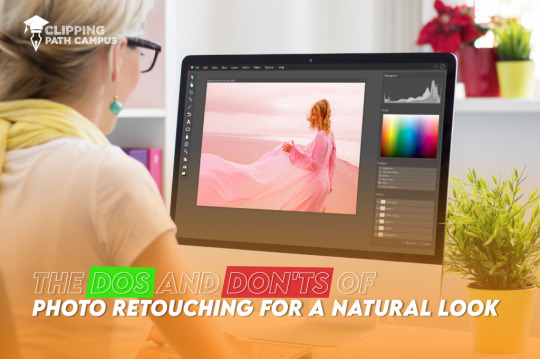
In today’s world, where social media and digital platforms are ubiquitous, the importance of having visually stunning images cannot be overstated. Photos that are visually appealing not only capture our attention but also help us convey our message and express ourselves. And while there is no denying that photo retouching can significantly enhance the overall quality of an image, overdone retouching can result in an unnatural look that can be off-putting. So, if you want to create visually appealing images without losing the natural charm of your subject, here are some dos and don’ts of photo retouching for a natural look.
The Dos For Natural Look Photo Retouching
Here Are the dos for natural look photo retouching:
Do: Focus on the Overall Look
The primary goal of photo retouching is to enhance the overall look of the image without making it look fake. So, before you start retouching an image, ask yourself, “What is it that I want to achieve?” Whether you want to remove blemishes, soften the skin, or whiten teeth, ensure that your retouching efforts are focused on enhancing the overall look of the image.
Do: Use High-Quality Tools
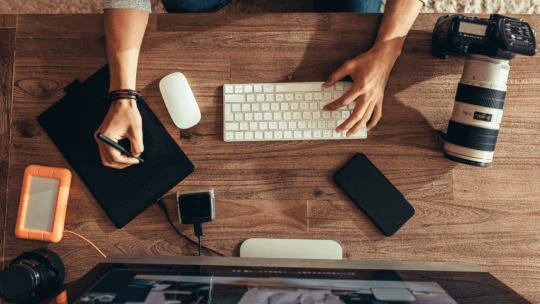
When it comes to photo retouching, using high-quality tools can make a world of difference. Make sure you are using the latest version of your photo editing software, as it will have the latest tools and features that will help you achieve a more natural look.
Do: Preserve Skin Texture
One of the most important aspects of natural look photo retouching is preserving the skin texture. Retouching techniques that soften the skin too much can result in an unnatural look. So, when retouching skin, ensure that you are preserving the natural texture of the skin.
Do: Adjust Brightness and Contrast
Adjusting the brightness and contrast of an image can significantly enhance its overall look without making it look fake. So, before you start retouching an image, adjust its brightness and contrast to achieve a more natural look.
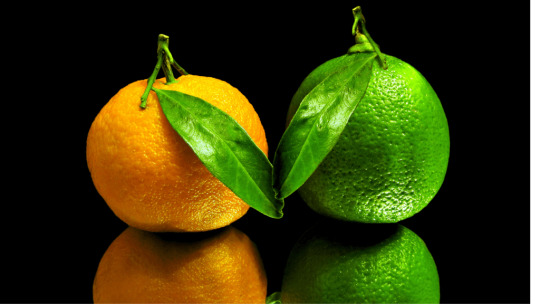
Do: Pay Attention to Details
When it comes to photo retouching, paying attention to the details is key. Whether it’s removing stray hairs or adjusting the brightness of the eyes, focusing on the details can significantly enhance the overall look of the image.
Do: Adjust Color Temperature
Color temperature can have a significant impact on the overall look of an image. Adjusting the color temperature can help you achieve a more natural look. So, experiment with the color temperature settings and find the one that works best for your image.

Do: Use Layers
Using layers can help you achieve a more natural look when retouching an image. By working on different layers, you can make adjustments without affecting the original image. This gives you more control and flexibility when retouching an image.
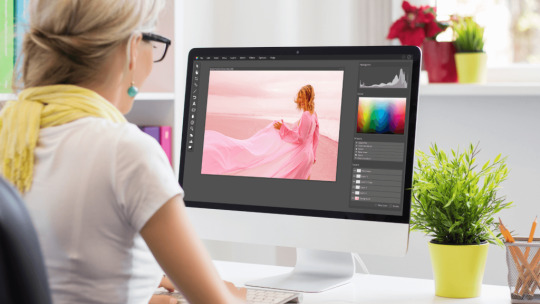
Do: Take Breaks
Retouching an image can be a time-consuming process, and it’s easy to get carried away. But taking breaks can help you stay focused and avoid overdoing it. So, take breaks frequently, step away from your computer, and come back with fresh eyes to ensure that you’re achieving a natural look.
Do: Work on a High-Resolution Image
When retouching an image, it’s essential to work on a high-resolution image. A high-resolution image will allow you to make adjustments without losing image quality. This is particularly important when retouching an image for print.
Do: Use the Healing Brush Tool
A healing brush tool is an excellent tool for retouching an image while maintaining a natural look. It allows you to remove blemishes, scars, and other imperfections without making the image look fake.
Do: Use Before and After Comparisons
Using before and after comparisons can help you ensure that you’re achieving a natural look when retouching an image. By comparing the original image to the retouched image, you can ensure that you’re not overdoing it and maintaining a natural look.
The Don’ts For Natural Look Photo Retouching
Now let’s come to the don’ts for natural look photo retouching
Don’t: Overdo It
One of the most common mistakes that many retouches make is overdoing the retouching. This can result in an unnatural look that can be a turn-off. So, always keep in mind that less is more when it comes to photo retouching. Don’t get carried away with the retouching tools and stick to the basics.
Don’t: Rely Too Much on Filters

While filters can be great for adding a certain mood or vibe to your images, relying too much on filters can result in an unnatural look. Instead of relying solely on filters, try to use them sparingly and combine them with other retouching techniques for a more natural look.
Don’t: Remove All Blemishes
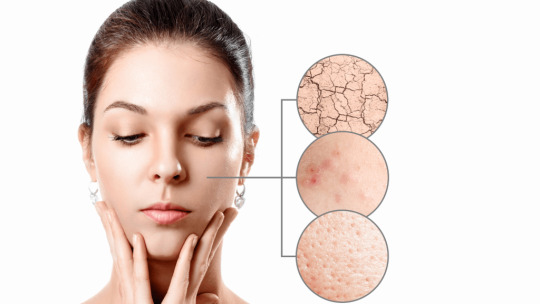
Blemishes are a natural part of the human body, and removing all of them can result in an unnatural look. Instead of removing every blemish, focus on the ones that are distracting or take away from the overall look of the image.
Don’t: Overuse the Clone Tool
The clone tool can be a great tool for removing distracting elements from an image, but overusing it can result in an unnatural look. Instead of relying solely on the clone tool, try to use other retouching techniques to achieve a more natural look.
Don’t: Remove Every Wrinkle
Wrinkles are a natural part of the aging process, and removing all of them can result in an unnatural look. Instead of removing every wrinkle, focus on those ones.
Don’t: Use Excessive Blur

While blur can be an effective way to soften the skin, using excessive blur can result in an unnatural look. So, use the blur tool sparingly and only in areas where it is needed.
Don’t: Ignore the Background
The background of an image can have a significant impact on the overall look of the image. So, when retouching an image, pay attention to the background as well. Removing distractions or adjusting the colors of the background can significantly enhance the overall look of the image.
Don’t: Overuse the Liquify Tool
The liquify tool can be a powerful tool for making adjustments to an image, but overusing it can result in an unnatural look. So, use the liquify tool sparingly and only in areas where it is needed.
Don’t: Over-Retouch Hair
Hair is an essential part of a person’s appearance, and over-retouching it can result in an unnatural look. So, when retouching hair, focus on removing frizz and stray hairs while maintaining the natural flow of the hair.
Conclusion
In conclusion, photo retouching can be a useful tool for enhancing an image and achieving a natural look. However, it’s essential to be mindful of the dos and don’ts of photo retouching to ensure that the final image looks natural and is not overdone. By following the tips mentioned in this blog, such as using the healing brush tool, adjusting color temperature, and using layers, you can achieve a natural look in your retouched images. Additionally, taking breaks and using before and after comparisons can help you maintain perspective and avoid over-retouching an image. Ultimately, the goal of photo retouching should be to enhance an image’s natural beauty and not create an entirely new look. So, remember to keep it natural and subtle, and the results will speak for themselves.
#photoretouching#photoretouchingservice#photoshop#photography#fashion photography#photoediting#eCommercePhotoEditingService#PhotoEditingServices#photo retouching#image retouching services#retouching#Retouch#backgroundremoval#productimageediting#ClippingpathService#Ghost_mannequin_services Image_editing_services photo_editing_services ecommerce_image_editing clipping_path_services clippingpathservice#portrait#beautyretouch#beautyretouching
0 notes
Link
Seeking to add that extra edge to your photography skills? Here is our professional's guide to camera shots and angles for professional photography.
#photography#photographers#fashionphotography#commercial photography#photographers on tumblr#original photographers#photographystudio#photography student#camera#shot#angels#professionalphotography#photographyguide#photographytips#learnphotography#cameraskills
0 notes
Text
Commercial Photography and Advertising-Types, Elements, and Differences

Photography has become an essential part of our daily life. Most people love photography when it comes to commercial photography and advertising. Commercial photography and advertising are related to products. These things guide the buyers to buy the right products. You will see many types, elements, similarities, and differences available between these two types. It is essential to explain the difference between commercial photography and advertising. The audience can understand the difference along with the types and elements by going through this article.
What Is Commercial Photography?

Commercial photography aims to capture a product in a visually appealing way. Proper lighting, backgrounds, props, and styling makes the product stand out. In contrast to fine art, it is a type of photograph created for business, sales, or promotions. It can even include photographs of people providing or receiving services. In catalogs and websites, the final product is used for advertising and marketing a brand or product. The primary goal is to produce promotional images that make items appealing to potential consumers.
What Is Advertising Photography?

Advertisement photography creates photos of products that appeal to the general public’s hearts and brains. The product is photographed for the viewer to imagine how much better their life would be if they had it. If the photographer performs an outstanding job, the audience will be forced to buy the thing straight away. This sort of photography creates an attraction among the people. The viewer will desire to have that product and purchase it. A commercial photographer does more than shoot products; they also connect them to people’s lives. When you’re reading a magazine or newspaper, you’ll come across many types of advertising photos.
Types of Commercial Photography & Advertising
Commercial photography and advertising photography come in a variety of forms. Some of them are:
Product Photography
Food Photography
Fashion Photography
Lifestyle Photography
Real Estate Photography
Architectural Photography
Billboard Photography
Corporate Portraits
Banner Photography
Photojournalism
Many more
Elements of Commercial Photography and Advertising

Camera
The first and most significant element of photography is the camera. Taking photos is impossible without a camera. That is why a photographer should invest in a high-quality camera for commercial and advertising photography.
License
It is critical for a photographer to acquire a commercial and advertising photography license. A photograph is a photographer’s intellectual asset. They have the right to have the picture authorized under the terms of the license. It signifies that a photograph is being used solely for personal purposes. A photographer’s license is a must-have element for commercial and advertising photography.
Getting to Know Photography
A photographer can take some of the best shots by knowing about commercial photography and advertising. Commercial and advertising photography differs from regular photography in several ways. As a result, knowing about commercial and advertising photography is also essential.
Proper Light
You must use correct lighting while taking photographs, whether they are for commercial or advertising purposes. Proper lighting may give your photos an added layer of texture.
Modern Style
Don’t use any old style for commercial and advertising photography. Try some new modern styles to make the photography more attractive and eye-soothing. Modern commercial and advertising photography styles include high speed, slow motion, the effect of smoke, shadow, and many more.
Correct Angle
When taking photos for commercial or advertising purposes, you must take the shot from the correct angle. The images will not be good enough if the angle is incorrect. People will dislike the photography of products or advertisements. It is a crucial aspect of commercial and advertising photography.
Modern Style
Don’t use any old style for commercial and advertising photography. Try some new modern styles to make the photography more attractive and eye-soothing. Modern commercial and advertising photography styles include high speed, slow motion, the effect of smoke, shadow, and many more.
Differences between Commercial Photography & Advertising

This article is here to explain the difference between commercial photography and advertising. While commercial and advertising photography has a lot in common, they also have a lot of differences. People who want to know the differences can go through this article to get better information.
The Main Goal
The main goal of commercial photography is to help target users recognize and appreciate a seller’s products or services. Using the most attractive position to photograph products promotes and encourages the target audience to purchase them. The goal of a photoshoot for an advertisement is to make a positive first impression on the target audience. It also displays a product or service in the greatest possible light, but the primary purpose is to attract the audience to want it in their home.
Subject of Focus
Commercial photography focuses on individual products. There can be other objects as props, but the main focus is on the product to sell. But, advertising photography focuses on the overall things such as product, background, model, etc. It is like a compilation of everything needed to promote the main products.
Perfection Vs Attractiveness
Commercial photography needs to be perfect so that the customers can make decisions to purchase the products. On the other hand, advertising photography needs to be attractive so that the customers want to know more about the products to buy them.
Emotion Vs Description of Product
Advertising photography attracts the audience by creating a mood or emotion. The photograph for advertising is intended to evoke a desire for the lifestyle shown in the photo, rather than only for the product itself. While commercial photography offers only the products and describes the products through images.
Single Moment Vs Story
In an advertisement, you can use commercial photography. But, every commercial photography is not an advertisement. Commercial photography captures a single moment while advertising photography conveys a story.
Final Note
Commercial and advertising photography is quite significant. People have evolved in this, and they now seek out photos before purchasing something. So you’ve got to know how they work and which one you need to use to reach your goals.
Read this article if you want to know how Commercial Photography works.
#commercial photography#commercialphotoediting#commercialphotographer#advertisingphotography#commercialadvertising#advertisingphotographer#ecommerce agency#ecommerce#commercial agency#creativeadvertising
0 notes
Photo

Visualization has always been the best way to experience the world, and on this day, we celebrate photography all over the world.
We salute those upholding this passion and showing us the world through their lenses.
0 notes
Photo

Everything you feel is true, and everything you experience is important. Don’t undermine your feelings or avoid them, lest you want them to come back and haunt you. Face and rise above your feelings.
#mentalhealthawarenessmonth2022#mentalhealthawareness#mentalhealthawarenessmonth#mentalhealthawarenesswee
0 notes
Link
#iphone#iphonephotography#productphotography#iphonephotographer#tipsandtricks#tips#process#guidelines#apps#effects
0 notes
Link
The background is what makes the object in the picture pop out and what's better than knowing the techniques professionals use for the best impact. Find out how you can select the best background for product photography that will really get the buyers' attention.
0 notes
Link
Commercial photography is what drives sales to new levels. Among these practices, daguerreotype has been the most successful technique in aiming it all right. Find out more about daguerreotype, the first commercial photography process.
#commercial photography#First Commercial Photography Process#daguerreotype#commercialphotographer#history
0 notes
Link
Commercial and Advertising Photography unlocks a whole new world for you, your product, and your business. With the endless possibilities of making the right impact, photography aimed at advertising stands as one of the most crucial elements of marketing. Find out everything you need to know about commercial and advertisement photography, their types, elements, and processes.
0 notes
Link
Did you know there are laws and prohibitions behind photography? Most of these laws enforced on photography will save you a lot of trouble in the long run. Find out what these laws are.
#photography#law#photographylaw#privacy laws#Publicphotographylaw#branding#ClippingpathService#photographers#commercialphotographer
0 notes